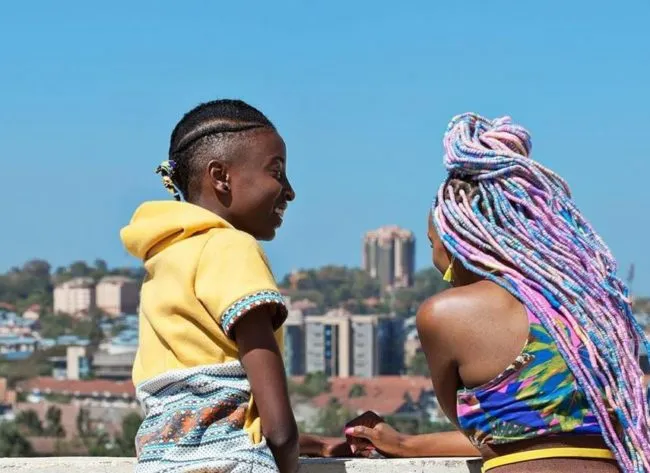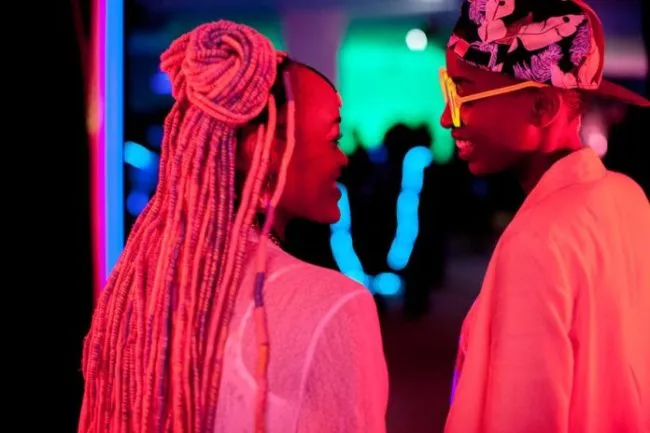Kenya sued for banning lesbian film Rafiki

Wanuri Kahiu attends The Hollywood Foreign Press Association and InStyle Party during 2018 Toronto International Film Festival (Michael Loccisano/Getty ,)
A Kenyan filmmaker is suing the country’s government after her film was censored over lesbian content.
The film Rafiki, directed by Wanuri Kahiu, debuted at Cannes film festival this year despite being banned in its country of origin.
The lesbian love story was rejected for release by the Kenya Film Classification Board (KFCB), a government body responsible for certifying all video content broadcasted in the country, “due to its homosexual theme and clear intent to promote lesbianism in Kenya contrary to the law.”

Rafiki
Kahiu alleged that the KFCB banned the film after she refused suggestions to make the characters “remorseful” at the end.
She filed a lawsuit against the KFCB this week, hoping to challenge practises that frequently see films outlawed in the country.
“I don’t necessarily consider myself an activist; I truly consider myself a storyteller. But when somebody starts to infringe on your rights to be creative and exercise your work, that becomes a problem,” she said, quoted in Vanity Fair.
“It’s not a government’s right to say what you can imagine and what you cannot imagine, and who is allowed to exist,” the filmaker said, adding: “That’s not a way that you can run a country, because we’re made up of diverse people.”

(Big World Cinema)
Asked what she expected of the lawsuit, Kahiu quipped: “I have no idea. I’ve never sued a government before!”
Lifting the ban could allow the film’s submission to the Academy Awards in the Best Foreign Language Film category.
Under the Oscars rules, films in the category “must be first released in the country submitting it… and be first publicly exhibited for at least seven consecutive days in a commercial motion picture theater.”
Kenya’s laws currently make it an offence to even own a copy of the film, let alone air it in a cinema.
No Kenyan film has ever received an Oscar nomination in the category.

(Big World Cinema)
The decision to ban the film is alleged to have been made by KFCB chief Ezekiel Mutua, an extreme opponent of LGBT rights.
Mutua made no secret of his animosity towards the project on social media, retweeting hundreds of messages attacking the “sinful” film and rallying against homosexuality.
The KFCB wrote: “Rafiki should not be distributed, exhibited within the Republic of Kenya. Anyone found in possession will be in breach of the law.”
KFCB spokesperson Nelly Muluka later added: “Our culture and laws recognise family as the basic unit of society.
“We cannot, therefore, allow lesbian content to be accessed by children in Kenya.”
Kenya’s President Uhuru Kenyatta, recently insisted that being gay is “not acceptable” and “not agreeable” in Kenyan culture, and that LGBT+ rights are “of no importance” in his country.
Speaking to CNN’s Christiane Amanpour earlier this month, the country’s leader said that he wanted to be “very clear” that he would not decriminalise homosexuality.
“I want to be very clear. I will not engage in a subject that is not of any major importance to the people and the Republic of Kenya.
“This is not an issue as you would want to put it, of human rights – this is an issue of society. It is an issue of our own base, our own culture as a people.”

